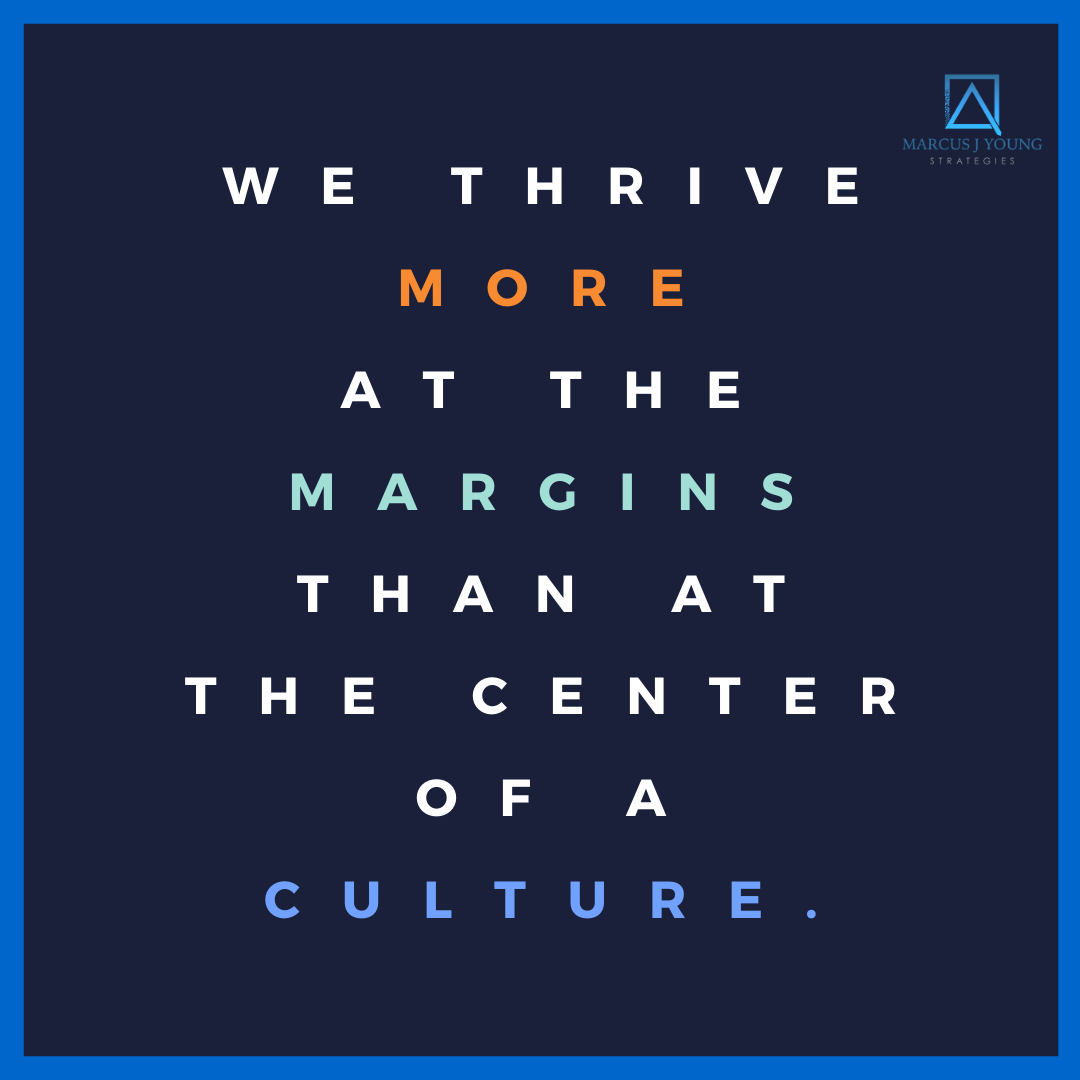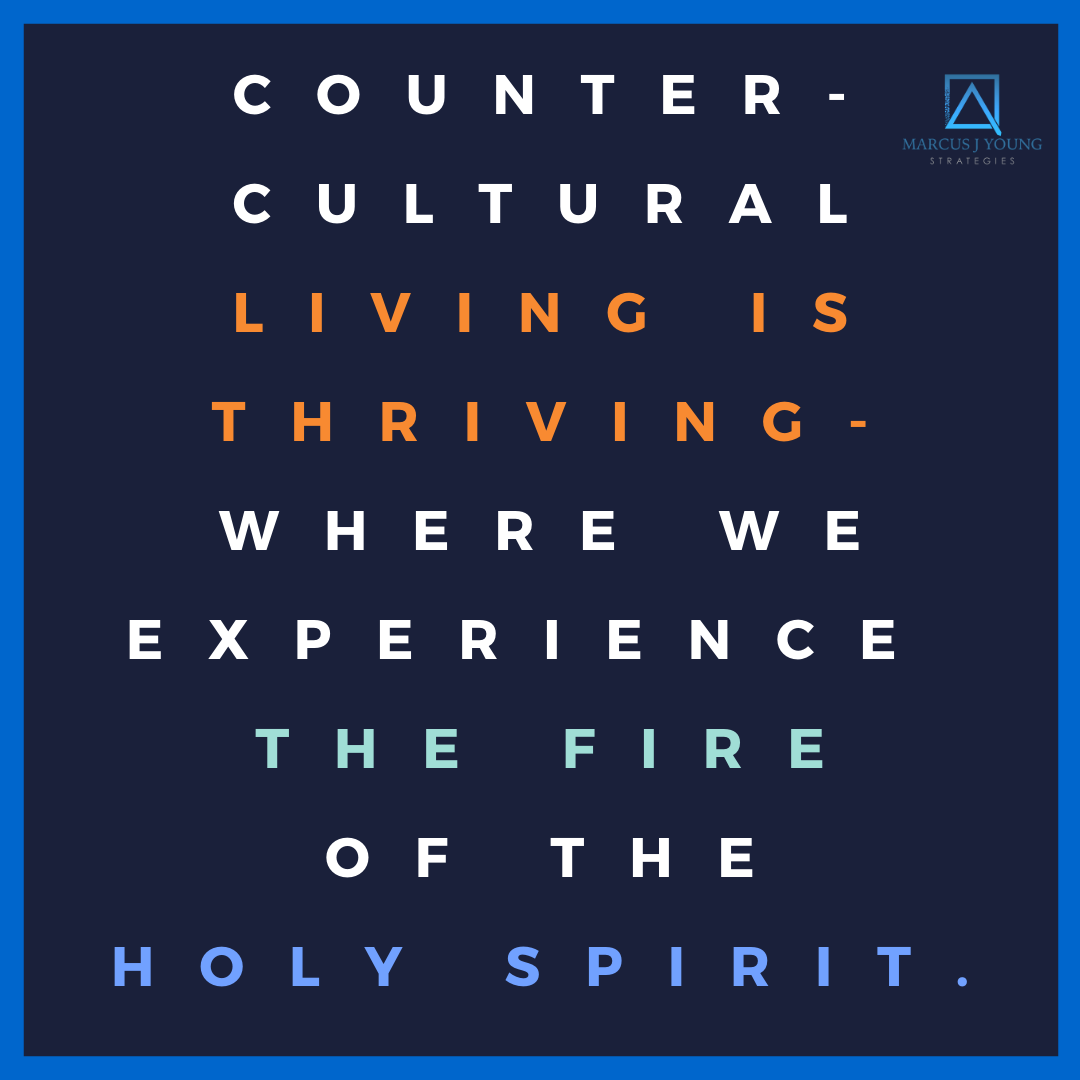We thrive more at the margins than at the center of a culture. Too far off the margins and the church historically becomes irrelevant to the culture or is persecuted into dust.
The margins in a favorite book are the place where we record ideas, moments of inspiration. The margins of a road are where pedestrians wander and where roads connect to peoples’ homes and commerce. Where destinations intersect with journey.
A margin can also be a measurement of “how much victory” or “how much shortfall.” If we are not communing at the margins as the church, we have already lost our ability to influence broader society. Yes, there is risk that by living in the margin, we might be falling short of society norms or acceptance, but there is also opportunity to gap-up where a culture is already in spiritual deficit.
How do we tackle the apparatus which, in season and out of season, is neutering and domesticating the church? We live at the margins, those places where we are not fully accepted by the world system but not so distant as to be far removed. This allows us to have a more prophetic, authentic voice. It allows us to challenge injustice without a loud angry voice.
The Jewish patriarchs—Abraham, Isaac and Jacob—sojourned, often as tribal Bedouins in Canaan, their land of promise. They resided outside the comfortable city limits but along the trade routes where regional communication and commerce flowed. They lived far enough into the fringe to be unique, to challenge the status quo, but close enough to not be completely foreign to the centers of culture.
A marginalization the church should embrace today is loving enemies. Loving enemies is a margin, a unique place that positions us like Abraham when he prayed for God’s mercy in judgement on Sodom, “if just a handful of righteous are found, would you spare them?”
Consider Abraham’s earlier rescue of Sodom and Gomorrah when Lot was captured by five invading kings. Abraham didn’t keep the spoils of war after victory. He didn’t move within their city walls like his nephew Lot. He didn’t try to personally benefit himself from war and wins as would be expected by society. He didn’t move into the center.
Where is the life at the margins for me personally? Where am I stretched and forced to grow, to be a person of real faith and character? Where is an outer margin that allows our good news of Jesus be validated?
We speak of creating margin in our lives to alleviate time stress, this can be wise. But seeking to enter the margins where the poor subsist or our enemies skulk might offer us even more of a life giving, authentic experience.
Consider this psalm, “Blessed is the one who considers the poor! In the day of trouble the LORD delivers him; the LORD protects him and keeps him alive; he is called blessed in the land; you do not give him up to the will of his enemies.” Psalm 41:1-2
These aren’t the only demographics we can go with when considering how to live at the margins. The important idea is: countercultural living is thriving. It’s the place where we find our edge and the fire of Holy Spirit. This is no license to be obnoxious, rather, it’s a call to open our eyes — the more people try to live at the center of current culture, the more they marginalize their souls and are starved for authenticity.
How are we exploring the margins to grow as authentic people of good news?



